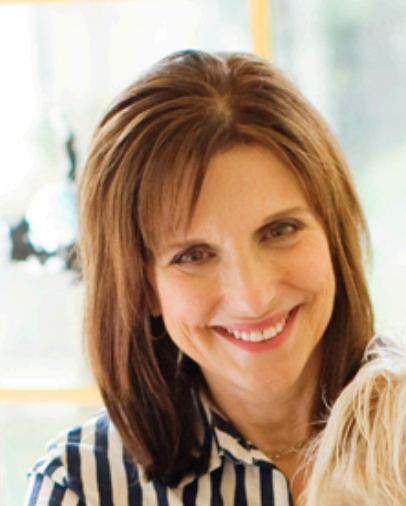From staying connected with co-workers to staying sane while working alongside a partner, the new work-from-home reality has created many challenges for employees and leaders. In this series, we examine top challenges and solutions, drawing on insights from Qualtrics Remote Work Pulse — a tool that helps organizations determine pain points for their remote workforce.
However devoted you are to your partner, being together 24 hours a day is probably not what you signed up for. Yet that’s the scenario for couples across the globe who are working from home during the pandemic. The challenges are immense: How do you get your job done, keep your connection alive, and find space for physical and mental alone time? That’s not to mention the added stressors for parents, particularly those with young children.
The strain is often felt in both work and family life. A Thrive Global original survey of 5,000 people about coronavirus pain points found that nearly 70% of people worry that their work performance will be negatively affected while they’re at home, and an equal number feel that the health crisis has had a negative impact on their close relationships.
The numbers are telling — half of people now working from home are doing so with a spouse or partner who is also working remotely, according to a survey of U.S. workers by Qualtrics, and while both sexes are feeling the strain, 55% of women say they feel more anxious from working from home compared to 46% of men.
With skyrocketing unemployment figures and uncertainty about job stability, there are also considerable economic worries for many couples, says Richard Slatcher, Ph.D., a professor of psychology at the University of Georgia and an expert in the field of relationships. But Slatcher, who has been conducting research around the world during the pandemic, tells Thrive there is some surprisingly good news. “Dual-income couples who are still gainfully employed, economically stable, and were satisfied with their relationships before COVID-19 are doing great and thriving under lockdown.”
According to Slatcher’s research, roughly 25% of people are reporting feeling more connected than usual. He adds that some study participants said they “feel guilty because they’re enjoying being in quarantine and feel closer than ever to their romantic partners — which is pretty remarkable!”
At the other end of the spectrum, though, “if couples have been having conflicts in their relationship, that really gets intensified when they are cooped up together,” he says.
Conflicts often revolve around seemingly simple household responsibilities, like who’s cooking dinner, who is cleaning up or shopping for groceries, says organizational management expert Eve Rodsky, the New York Times best-selling author of Fair Play. In relationships between men and women, Rodsky says many women are doing the lion’s share of housework and childcare — as well as their paid jobs. For same-sex couples, there’s also frequently an imbalance, with one partner tending to do more than the other, she says. Rodsky’s book details a system that aims to help couples thrive and achieve balance.
Many couples are, of course, doing their best in stressful circumstances. But Rodsky, who lives in L.A. with her husband and children, aged 11, 8, and 4, tells us that research she’s conducted since the onset of the pandemic shows many mothers “are totally overwhelmed. One woman told me: ‘Can someone please explain how to homeschool the kids, take care of all the meals, and also work full-time from home?’” According to Rodsky, “couples need to communicate now more than ever and to understand that all time is created equal — that “unpaid ‘invisible labor’ to keep the home running efficiently is just as valuable as paid work.”
While the challenges are real, there are plenty of solutions and strategies to help you navigate this time together and keep your relationship healthy. Here are some tips to try:
Set up a routine that works for you
Establishing a routine is particularly important right now, says Slatcher. It helps people feel in control of their lives when so much is out of control because of the pandemic. Routines, like having meals together (without technology present), are associated with greater well-being and greater happiness in relationships, he says. “Focus on work during regular workday hours, then stop work and shut off your devices at around the same time each evening if you can. Unplugging at night is going to benefit your relationship.”
Share the load — and clearly define it
“Decide when you will have your dedicated work time, and when you and your partner are going to handle childcare and household tasks,” suggests Rodsky. In her own family, she says, “I do homeschooling in the morning — language arts and social studies. Seth, my husband, is in charge of math, physical education, and science in the afternoon. I am responsible for breakfast and he is responsible for lunch.” They take turns making dinner. “Save yourself from burnout by making choices that best serve your family based on what’s most valuable to you and your partner,” she says.
Listen actively
Have you heard your partner say: “You might be hearing me, but I can tell you’re not listening to me?” It turns out, there’s a difference. With active listening, your intent is to understand. Attempting to see things from the other person’s perspective “does wonders for relationships,” notes Slatcher. If you’re finding it hard to find empathy for your partner, try to remember that you’re on the same team working toward the same goals. “People try to win arguments and the reality is that with that kind of a strategy, the relationship always loses,” Slatcher says.
Initiate a timeout
“Don’t communicate when emotions are running high, because that will exacerbate any conflicts,” says Rodsky. If you are angry or upset, “walk away and write down what you’re upset about.” Instead, meet later for a calm 10-minute conversation, says Rodsky. When you do come together to talk, look at each other in the eyes to show you are here for each other and committed to working through your challenges.
Get moving
You might not think that movement is relationship glue, but it turns out, it is. “One of the biggest predictors of how happy couples are right now is whether or not they’re exercising,” says Slatcher. Exercise improves well-being — and if you’re able to do it outdoors, you may get an additional boost. Also, he says “going for a walk with your partner can be bonding. Leave your phone at home, or at least turn off notifications. From our data, lots of couples are doing this and saying, ‘this is the best thing that’s helping my relationship.’”
Shake up your activities
Do fun shared activities when you are not working. “If you can mix in some novelty, that’s really beneficial,” says Slatcher, who suggests activities like cooking together or playing games. “My wife and I played cards last weekend — we hadn’t done that in 15 years.” Do something that you don’t normally do together, or don’t have the time for when you’re both commuting to an office.
“There is a lot of happiness to be gained from ordinary moments like reading or watching a movie together,” Rodsky adds, noting that appreciating the simple pleasures of life together can be very rewarding.
The experts cited in this story were not paid for their participation, nor does their participation imply an endorsement of the products and/or services mentioned above.


